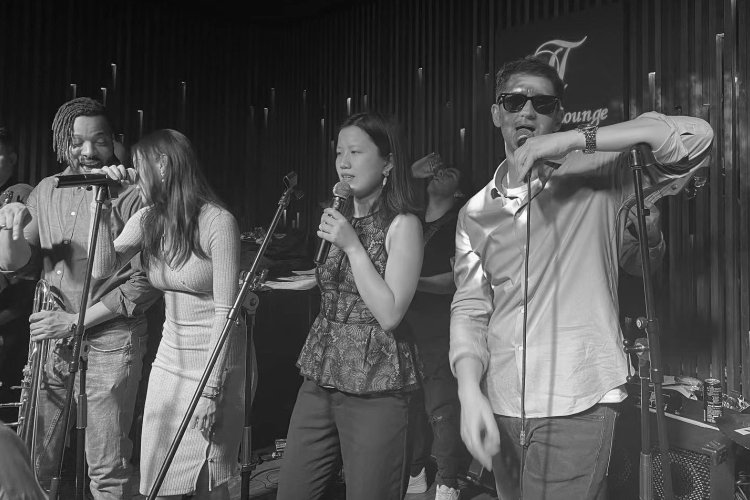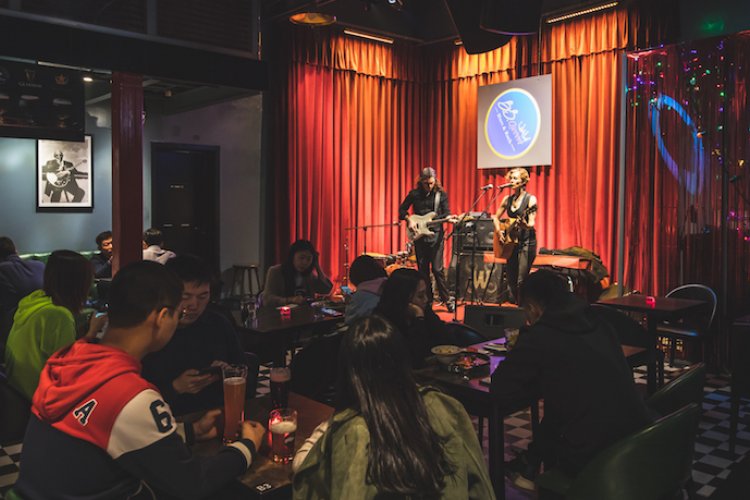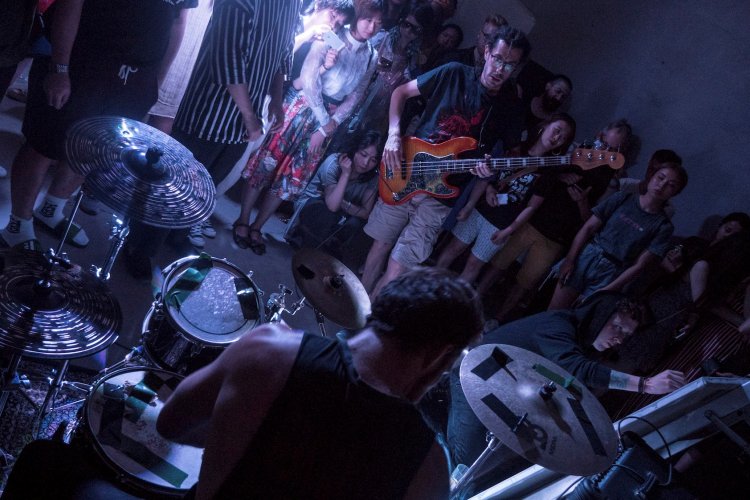Taiwanese Band Manic Sheep Talk Global Recognition and Toeing the Line Between Light and Dark
Some bands wait decades before they can make a splash on the international scene, but Taipei band Manic Sheep's self-titled album struck a chord with listeners situated much further away than on their little island when it was released back in 2010. It wasn't long after that they were invited to SXSW, got in their licks at Fuji Rock in Japan, and had their song "La La La" playing on radio stations around the world.

For most, that would be enough. But instead of falling into the trappings of newfound success, the band doubled down, reshuffled their lineup (which included lead singer Chris Lo switching from bass to guitar) and went to work on their triumphant 2016 sophomore release Brooklyn. That album saw them expand their rock sound and paid tribute to the emotionally charged dream pop bands of the New York scene, needling a melodic thread that punctuates and balances out the band’s darker and more disruptive tendencies. It’s a lush piece of work, and solidified the band’s reputation as one of Taiwan’s leading voices in indie rock.
Manic Sheep, whose line-up now includes guitar player Howard Yang, bassist Joy Chang, and drummer White Wu (whose propulsive psychedelic-inflicted skills can also be heard in the band Prairie WWWW), will showcase their new EP Deep Dusk this Sunday, Jun 16 at DDC. Before the show, I asked the band about their travels abroad, their new direction, and what they reckon to mainland China’s growing love for Taiwanese indie rock.
Some bands wait decades before they can make a splash on the international scene but it feels like you guys connected with overseas audiences immediately. Were you expecting such a quick response to your music?
Howard Yang: I am grateful to see fans around the world saying that they like our music. Seeing foreign radio stations sharing our music still makes me feel amazed.
Chris Lo: It was flattering, though it’s all by accident. I could have never imagined that we could spread our music overseas.
What does your day to day life entail and how much does it influence your music? What else inspires you?
Yang: I’m quite a plain and boring person... so this reflects the expression of my instrument in a certain way. I've been listening to jazz recently, so instead of focussing on a song’s melody or guitar riff, I’m now more fascinated by interesting rhythms and grooves. I have learned a few chords from jazz that’s for sure.
Lo: I spend most of my time at home, working, doing housework, playing video games. Even when living a very ordinary life, I still accumulate a lot of emotions. Creation has therefore become my catharsis.
You’ve performed in quite a few places, from Canada to the US, Hong Kong to Japan. What lessons did you learn from touring and performing in regards to how different music scenes operate?
Lo: The music industry in some countries is very mature, such as the United States and Japan. So the competition is very intense. During the tour, I met many very talented musicians who were still unknown, but they did not give up. The biggest gain for me is learning the importance of persistence.

I’ve noticed a lot more collaboration not only between Taiwan and mainland China’s indie music scenes but the rest of Asia as well – do you sense this? What do you think has contributed to this? Where do you see it headed in the next five years?
Yang: It is obvious that the connection between Asian bands is much closer now, and it is easier to get information from other countries through different types of media. Take Taiwan as an example, where we know a Japanese promoter who has lived in there for a very long time. Not only did he introduce Japanese bands to play shows in Taiwan, but he also introduced Taiwanese bands to Japan. That connection between people naturally formed a large network.
Indie rock and shoegaze/dream pop genres, in particular, have a strong following in Asia – what do you think it is about this type of music that’s so alluring and universal to listeners?
Yang: I’m not sure. I can’t remember when I started to hate Guitar Hero-style playing, and everything sounds better with reverb, so maybe it's just about it being more romantic? It makes you feel drowned in a wall of sound.
Lo: Honestly, I really don't know why. Ten years ago, or five years ago, indie pop was not that popular in Asia. But over these last few years, you see the difference. I think this is a trend right now, and we can’t predict if it will still be popular in the future or not.
Your new EP, Deep Dusk, is phenomenal – it hints at something darker and bolder within your sound that I hadn’t detected before. What’s the story behind these two tracks? What was the aim with EP?
Yang: When I was writing the guitar part for "Deep Dusk," I tried some different riffs but soon I felt it’s way too cliche and became annoyed while playing it. Since the rhythm of "Deep Dusk" is simple and groovy, I decided to go bold and sound huge.
As for "Sedona," I wanted to write with a very dull and simple guitar rhythm on purpose. The whole atmosphere was shaped by only two notes with reverse reverb, and I also wanted to have some drone-like sound. It was interesting to me in the beginning, but not so fun after I stuck there for a while and started to feel really bored... Fortunately, I ended up adding an outro and I'm happy with it.
How did your Shanghai show go last month? What can audiences expect for the upcoming tour?
Lo: Psychologically, the show was very satisfying. Although the audience wasn't too big, I felt connected with them. Actually, we've prepared different content for each tour, including the visuals. We're excited to see how it turns out.
Catch Manic Sheep alongside The Claptraps this Sunday, Jun 16. Tickets are RMB 80 advance or RMB on the door.
READ: The Nina Crew Brings Cozy Down-to-Earth Wine Bar Pinó to the Hutongs
Images: Rock Burger Photography







